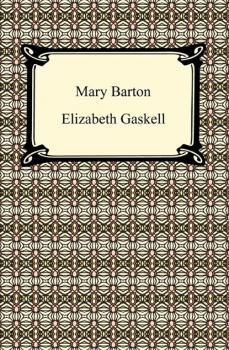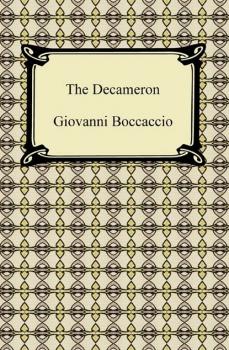MREADZ.COM - много разных книг на любой вкус
Скачивание или чтение онлайн электронных книг.Autobiographies
Collected in this edition is the early autobiographical fragment written by Charles Darwin in 1838 along with his official autobiography which was first published in 1887, five years after his death. His controversial theory of evolution, which asserted that all of life on earth descended from common ancestors through a process of natural selection, subjected him to much criticism in his lifetime but would ultimately place him amongst the most important figures in the history of science. «Autobiographies» gives a personal insight into the life of Charles Darwin from his time at Cambridge University, to his landmark naturalist expedition during the voyage of the «HMS Beagle», and his life that followed in England. This document of one the world's most important naturalists is a must read for any student of the history of science and gives a firsthand account of the impact that a truly revolutionary theory can have.
The Complete Fairy Tales
The works of George MacDonald have influenced the likes of W. H. Auden, J. R. R. Tolkien, Madeleine L'Engle, C. S. Lewis, and Mark Twain. Best known for his tales of fantasy and fairies, Macdonald commented of his work that he wrote «not for children, but for the child-like, whether they be of five, or fifty, or seventy-five.» This collection brings together some of his most memorable stories. Included in this edition of «The Complete Fairy Tales» are the following stories: The Light Princess, The Shadows, The Giant's Heart, Cross Purposes, The Golden Key, Little Daylight, Nanny's Dream, Diamond's Dream, The Carasoyn, The Wise Woman, The Day Boy And The Night Girl (The Romance Of Photogen And Nycteris), and an essay on fantasy writing entitled The Fantastic Imagination.
Mary Barton
A moving account of poverty set in 1840s Manchester, Gaskell's first novel follows the young and beautiful Mary Barton, daughter of a factory worker, who is eventually caught up in the class struggle of her time. She attracts the attention of a wealthy mill-owner's son, Henry Carson, although she soon discovers her love for the poor, hard-working Jem Wilson. When a brutal shooting leaves a man dead, Mary must decide if she wishes to help in Jem's defense, for he is accused of the murder, and she knows who the real culprit is with certainty. Gaskell weaves Mary's story amidst a moving account of the hardships and grinding poverty of England's working class. A clear call for increased communication, greater equality between the rich and the poor, and redemption is made by Gaskell, who is often called Great Britain's social conscience of the Industrial Revolution.
The Fifth Queen
Ford Madox Ford (1873-1939) was an English novelist, essayist, memoirist, poet and critic. He founded literary journals such as «The English Review» and «The Transatlantic Review» which were instrumental in the development of early 20th century English literature. He published renowned authors such as Thomas Hardy, H. G. Wells, Joseph Conrad, John Galsworthy, William Butler Yeats and many more in these influential journals and even collaborated with Joseph Conrad on three novels. He is now best remembered for «The Good Soldier» (1915), the «Parade's End» tetralogy (1924-28) and «The Fifth Queen» trilogy (1906-08). «The Fifth Queen» is a fictionalized account of the fifth wife of England's Henry VIII, Katharine Howard. Katherine is depicted as armed only with education, wit and honesty. The plot-ridden court comes to dramatic life as everyone high and low maneuvers for advantage. Everyone except Katherine, whose unwillingness to scheme will make her the queen and defenseless at the same time.
The Fasti (Verse)
"The Fasti" was believed to have been left incomplete when Ovid was exiled to Tomis by the emperor Augustus in 8 AD. The work, which is structured based on the Roman calendar, is a series of elegiac couplets which present the first-hand accounts of vates, or «poet-prophets» with Roman deities regarding the origin of various Roman holidays and associated customs. The first six months of the year are all that is included in the work and it is unclear whether this was the intention of Ovid, whether the work is incomplete, or if the books on the last six months are simply lost. The book is dedicated to Germanicus, great-nephew of the Emperor Augustus, and it's speculated that «The Fasti» was written with the intention of restoring Ovid's standing with the rulers of Rome and to secure his release from exile. Presented here in this edition is the verse translation by John Benson Rose.
The Red Badge of Courage
Although never having seen battle Stephen Crane vividly depicts the grueling intensity of the American Civil War. The story revolves around Henry Fleming, a member of the 304th regiment of the Union Army. At the start of the novel Henry is eager to show his patriotism in battle but when faced with the savagery of death he flees the frontline. Throughout the novel Henry struggles with his courage in the face of the horror of war. «The Red Badge of Courage» is a classic modern depiction of the psychological turmoil of war from the perspective of an ordinary soldier.
Twenty Thousand Leagues Under The Sea
One of the greatest underwater sea adventures of all time, «Twenty Thousand Leagues Under the Sea» is the story of Professor Pierre Aronnax who sets off aboard an American frigate to investigate a series of attacks, which has been reported to be made by an amphibious monster. The monster in question is actually the submarine vessel the Nautilus, which is commanded by the eccentric Captain Nemo. When the Nautilus destroys the Professor's ship, he is taken prisoner by Captain Nemo along with his trusted servant Conseil and the frigate's harpooner Ned Land. What follows for the three is a tale of great adventure and scientific wonder that will delight readers both young and old.
The Decameron
Written in the middle of the 14th century as the Bubonic Plague decimated the population of Europe, «The Decameron» is a satirically allegorical collection of stories by the Italian author Boccaccio. The refined frame narrative of this work allows for ten Florentine women and men to flee the city and take refuge in a country villa of Italy. In the ten days they are to stay, each of them is to tell a story a day, the themes of which are determined by the elected king or queen for that day. Most of the 100 tales are those of love, from erotic to tragic to rather surprising, portraying people of all social stations with a full spectrum of human reactions. More than the sum of its parts, «The Decameron» has inspired countless works of art, and later writers, such as Chaucer, have been influenced by his tales of fate, desire, crisis, and adventure. A milestone in the history of European literature, this imaginative narrative is an enduring masterpiece.
The Letters of Jane Austen
One of the most beloved authors in English literature, Jane Austen wrote myriad novels, stories and poems that illustrated her sophisticated sense of irony, humor and biting commentary on the society of Regency England. As the majority of her work was published anonymously, in the custom of female authors at the time, much of her notoriety came about posthumously. In addition to her published works, Austen kept avid personal correspondence with friends and family, particularly her sister, Cassandra. This collection of letters provides an invaluable glimpse into the author's life, which was spent primarily within a close-knit family circle making perceptive observations of human behavior and relationships. Pursuant to the themes of her novels, it is clear that Austen was unimpressed by pomposity and pretention and held a deep adoration for those she loved. These letters, pervaded by her usual charming wit, will be a joy to read for any Jane Austen enthusiast.
Rhesus
Though little is known for certain of his early life, Euripides was probably born around 460 b.c.e. to the farmer Mnesarchus and his wife Clito, and his studious nature quickly led him to a literary life in Athens. Euripides turned to playwriting at a young age, achieving his first victory in the dramatic competitions of the Athenian City Dionysia in 441 b.c.e. He would be awarded this honor three more times in his life, and once more posthumously. His plays are often ironic, pessimistic, and display radical rejection of classical decorum and rules. Together with Aeschylus and Sophocles, Euripides would provide the canon of Greek tragedy and thereby lay the foundation of Western theatre. «Rhesus» takes place during the Trojan War, and, as in book 10 of Homer's «Iliad», depicts the night when Odysseus and Diomedes sneak into the Trojan camp. There has been some debate as to the authorship of «Rhesus», but modern scholars believe Euripides to be the correct author.









